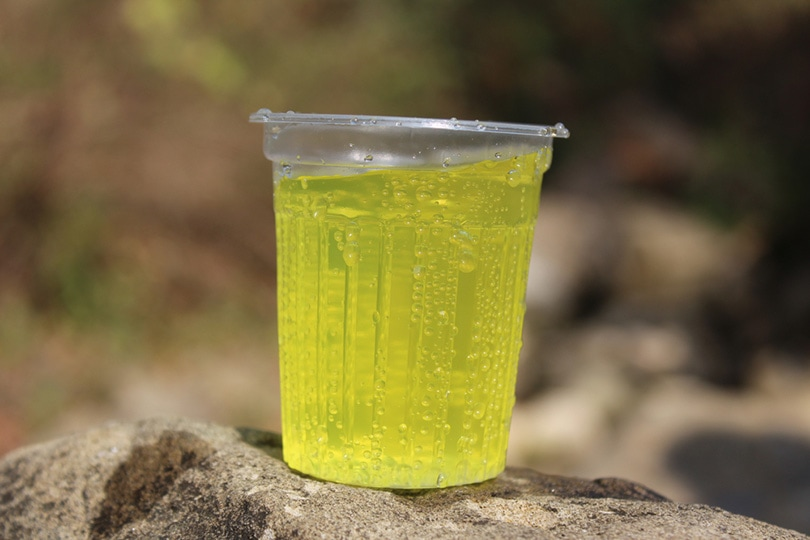When it comes to coffee, caffeine is a matter of great interest, but that’s also popular in other important sectors. All caffeinated products include supplements such as pre-workout, chocolate, tea, and energy drinks that often claim to have the same caffeine benefits as coffee. Another caffeine-fueled beverage that millions of people enjoy every day, especially the more popular brands like Mountain Dew. How much caffeine is in mountain dew?
All About Mountain Dew.
In the United States, Mountain Dew was created in 1940 and is an older carbonated drink that enjoys a very high popularity in the Southeast. Pepsi bought Mountain Dew from the company at the end of 1960 and has continued to produce and distribute this drink ever since, also producing a number of variations on its original.
The history of Mountain Dews is just as legendary as the color yellow. Mountain Dew is a global super sweet soda sensation that started as a mixer for alcohol and became the go-to caffeine fix for gamers. With 54 mg of caffeine in a standard 12-ounce can, Mountain Dew ranks as one of the most caffeinated choices within the carbonated beverage sector, equating to 4.5 mg per ounce. That is likely to be the reason that many soda holders are attracted to this flavor because it provides a short-term boost of energy thanks to its high sugar and caffeine content.
Mountain Dew’s original version is renowned for its delightful citrusy sweetness. While other citrus sodas such as Sprite and 7-Up are caffeine-free, Mountain Dew contains caffeine. You may be surprised by just How much caffeine Mountain Dew contains compared to coffee. Let’s embark on a journey to uncover the answers within this article, shall we?
Is it coffee or Mountain Dew? Who’s the one that you think packs more of an energy boost? And how much caffeine is in Mountain Dew?
PepsiCo is the producer of Mountain Dew or MTN Dew. It has a distinctive citrus taste, as well as a neon yellow color. In every 12-fluid-ounce can of both regular and diet Mountain Dew, you’ll find 54 mg of caffeine. In comparison, a typical 12-fluid-ounce cup of coffee contains approximately 136 mg of caffeine. However, Mountain Dew Zero has 68 mg of caffeine per 12 fluid ounces in comparison with its normal counterpart.
Caffeine in Mountain Dew is high, with 12 ounces of black coffee averaging approximately 120 to 150 mg of caffeine per cup. Therefore, Mountain Dew is a much-reduced caffeine option and not the finest source of caffeine for those who seek to use it as a kick. It is because caffeine content will be added during production as a result of the fact that this drink is not cooked from coffee or tea leaves, and it’s going to be synthesized caffeine.
The Flavor and Contents of Mountain Dew.
There are a number of different flavors of Mountain Dew, just like other popular beverages. The main components are Voltage, Wire Live, Code Red, Major Melon, and Zero Sugar. Each flavor of Mountain Dew contains 54 mg of caffeine per 12oz serving. However, the caffeine content of Mountain Dew Zero is 68mg in a can.
In a single serving size of 1 cup, or 227 g, Mountain Dew contains the following ingredients: carbonated water, high fructose corn syrup, concentrated orange juice, citric acid, natural flavors, sodium benzoate (used to preserve freshness), caffeine, sodium citrate, erythorbic acid (also used to preserve freshness), gum arabic, calcium disodium edta (employed to protect flavor), brominated vegetable oil, and Yellow 5. Mountain Dew offers 110 calories and 35 mg of sodium in one serving, which amounts to 1% of the daily recommended value or 29 grams of sugars equivalent to 10%.
Remarks: This is not only an overload of sweetness, but it’s important to be aware of how much sugar you have every day for your needs in nutrition, weight maintenance, and heart health. It’s giving the edge to black coffee as a more nutritious source of caffeine when you take into account the huge amount of sugar in one can of Mountain Dew.
Is Mountain Dew a Worthy Source of Caffeine?
According to the Food and Drug Administration’s guidelines, 400mg of caffeine per day should be recommended as a safe daily dose for otherwise healthy adults. It may be beneficial for some to consume more without any undesirable effects, but that is not healthy for others. Due to the fact that Mountain Dew caffeine contains 54mg per can, most people can eat a handful and stay within their daily dose. But It’s also important to remember that caffeine is found in many beverages and food, so you need to look at all sources daily.
For energy boosts, only small and short-term benefits are likely to be produced from the caffeine in Dew Mountain. Coffee or energy drinks will be required to give you more of a boost.
Conclusion
Mountain Dew is a classic soda and it has caffeine in mountain dew that looks like it’s glowing in the dark, but when it comes to sugar and other ingredients, it’s as bad as any. Caffeine in mountain dew is high as It contains one of the highest levels of caffeine in soda, but it doesn’t provide a good source. 54 mg of caffeine per 12 fluid ounces is contained in the diet and normal Mountain Dew. There is 68 mg of caffeine in Mountain Dew Zero per 12 fluid ounces. Depending on how much coffee you drink, it’s more caffeine with about 136 mg per 12 fluid ounces.
Mountain Dew is a once-in-a-while treat, but it shouldn’t be the only source of caffeine every day due to its high sugar content, natural colors, and additive flavorings.




